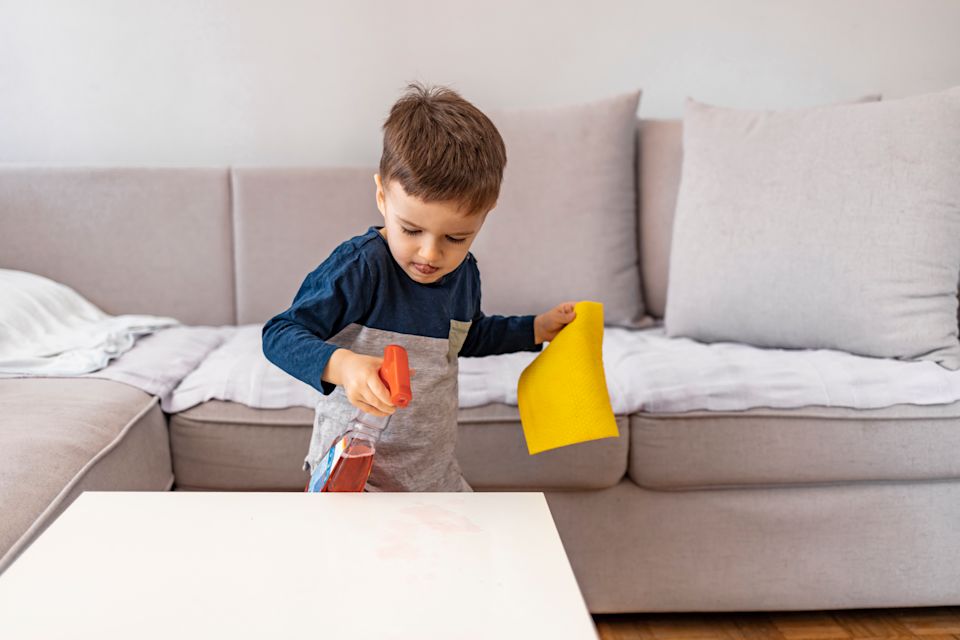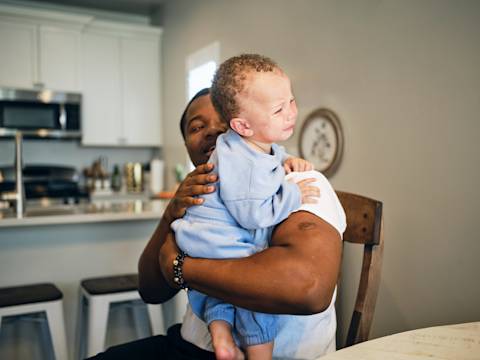Mientras tu pequeño empieza a entrar al mundo del Kínder, te puedes preguntar cómo puedes apoyar su aprendizaje desde la casa. Esta etapa está llena de crecimiento, desde la lectura y las matemáticas tempranas hasta las habilidades socioemocionales. Aquí te detallamos cómo puedes ayudar a tu niño a desarrollar estas habilidades fundamentales todos los días.
¿Qué aprenden los niños en el Kínder?
En el Kínder, tu niño participará en todo tipo de diversión y aprendizaje. Podrá explorar letras y sonidos, conceptos matemáticos básicos, cómo hacer amigos y jugar bien con los demás, y muchas otras habilidades. Aquí tienes un breve resumen:
Matemáticas: Los niños de Kínder aprenden a contar y reconocer números, y comienzan a hacer sumas y restas simples. También juegan con formas y patrones.
Lectura y escritura: Tu pequeño comenzará a reconocer letras y sonidos, y comenzará a comprender que los garabatos en el papel realmente significan algo. Incluso podrían comenzar a escribir palabras y oraciones simples.
Ciencias: Tu niño sentirá curiosidad por el mundo que le rodea, aprendiendo lo que las plantas y los animales necesitan para sobrevivir y cómo cambia el clima. Momentos simples, como ver qué sucede cuando empuja o jala un carrito de juguete, pueden despertar su interés.
Habilidades sociales: Cada personalidad es diferente. La experiencia de hacer nuevos amigos en la escuela puede ser más fácil para algunos niños que para otros. Compartir, tomar turnos y expresar sentimientos son partes importantes del Kínder. La comunicación abierta con los maestros sobre lo que funciona bien para tu niño puede ayudarle a establecer relaciones sociales exitosas en el salón.
Responsabilidad: El Kínder es una gran oportunidad para aprender la responsabilidad. Seguir reglas y rutinas, como guardar las mochilas en los casilleros o vaciar carpetas y colocar papeles en un lugar designado, los prepara para mayores responsabilidades en el futuro.
Estas habilidades también se relacionan con ayudar a tu niño a desarrollar confianza y curiosidad. Y tú puedes reforzar todas estas habilidades en casa de manera simple y cotidiana.

Para apoyar las habilidades matemáticas, puedes contar manzanas en el supermercado y animar a tu niño a señalar los números que vea en los precios de las etiquetas o en los pasillos de caja. Haz que estos momentos se sientan como juegos mientras practican sus nuevas habilidades juntos. Aquí tienes otros juegos de matemáticas que puedes hacer con ellos.
Para ayudar a apoyar las habilidades de lectura, agrega letras magnéticas en el refrigerador para practicar la ortografía jugando. Ayúdalo a identificar letras y sonidos mientras cocinas o limpias en la cocina. Si tienes un pedazo de papel de sobra o algo del correo que no sirva, anima a tu niño a dibujar y a contar historias sobre sus dibujos. Esto puede ayudarle a conectar imágenes con palabras y desarrollar sus habilidades para contar historias.
Y no olvides visitar tu biblioteca local para conseguir libros nuevos; leer juntos puede ser un hábito diario que fomenta el amor por los libros. Leer libros sobre emociones y los juegos de imaginación también puede ayudarles a aprender a manejar diferentes situaciones.
Siente curiosidad por la naturaleza con tu niño. Observa plantas y animales en tu patio trasero o parque local y hablen sobre cómo cambia el clima. Experimentos sencillos, como usar un ventilador para mover un carrito de juguete, también pueden ser excelentes maneras de despertar la curiosidad de tu niño por la ciencia.
Ayuda a tu niño a hablar sobre sus sentimientos con una lista de sentimientos. Leer historias sobre diferentes emociones también puede ayudarle a comprender y expresar lo que siente. Otra manera de fomentar el crecimiento socioemocional es animarlo a jugar con otros niños, tomar turnos y compartir. Y finalmente, los juegos de roles e imaginación pueden ser una manera divertida de practicar habilidades sociales.
Deja que tu niño haga pequeñas tareas en casa. Ya sea vestirse, empacar su mochila o poner la mesa, estas pequeñas tareas le ayudan a sentirse más seguro y capaz. Incluso podrías hacer una divertida lista de rutina para las mañanas para mantener todo en orden. Estas pequeñas responsabilidades adicionales pueden sentar las bases para oportunidades de aprendizaje en las actividades diarias.
Crea un rincón de lectura: Crea un rincón con libros que tu niño pueda explorar. Déjalo "leer" las imágenes y contarte la historia con sus propias palabras.
Juega juegos educativos: Los juegos de mesa y los juegos de cartas que implican contar, combinar o estrategia pueden ser divertidos y educativos. También tenemos nuestro juego de cartas Enfrentando grandes sentimientos. Es interactivo y ayuda a tu niño a explorar las emociones.
Limita y supervisa el tiempo de pantalla: Fomenta más interacciones cara a cara y actividades prácticas para apoyar su desarrollo socioemocional y conductual.
Al incorporar estas actividades en tu rutina diaria y la de tu niño, puedes ayudarle a triunfar en el Kínder. Recuerda, cada niño aprende a su propio ritmo, así que celebra su progreso ¡y disfruten juntos de esta emocionante etapa!






